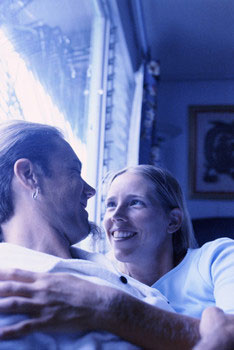 A Virginia General Assembly committee on Monday rejected a bill that would have required online dating companies to display prominent messages on their Web sites and e-mails stating whether they conduct criminal background checks on their users. A Virginia General Assembly committee on Monday rejected a bill that would have required online dating companies to display prominent messages on their Web sites and e-mails stating whether they conduct criminal background checks on their users.
Under the proposal, online dating services would have been required to conduct background checks to determine whether users have been convicted of a felony. If a service chose not to conduct the checks, it would have been required to disclose that in at least 12-point type on its Web pages and e-mails.
The Virginia House of Delegates's Science and Technology Committee voted 9-4 against the bill. "For practical purposes, it's dead for the rest of the session," said sponsor Joe May (R-Loudoun).
May's bill was similar to legislation introduced in five states during the past year to require background checks on would-be online daters. The effort was begun last July at the urging of Herbert Vest, chief executive of True.com, a Dallas, Texas-based online dating site that launched in December 2003.
Vest said in an interview that "there is a great deal of criminal predation" on Internet dating sites and that only background checks would make people feel safer. He said that this would lead to growth in the online dating business as more people trust the services.
So far, Vest has persuaded legislators in several states to sponsor legislation to require sites to say whether they do background checks. The Michigan House of Representatives passed a bill last year, but it died later in the state Senate. A Texas state senator plans to introduce a similar bill before the end of the week, and similar measures are afoot in Ohio and Florida, according to lawmakers and aides involved in drafting the proposals.
The strategy, Vest said, is to get enough states to pass the bills that Congress responds to the groundswell by trying to pass a federal law.
91agri.com, the nation's largest online dating service, opposes requiring criminal background and FBI checks, as does the Internet Alliance, a Washingtonn, D.C.-based lobbying firm with a roster of large technology company clients such as Experian, Time Warner, SBC Communications and Comcast.
People could get around the checks by using fake names, and there are several states that do not make their sex offender and criminal records available for dating services, said Internet Alliance Executive Director Emily Hackett. "It would be a false trust," she said.
Most of 91agri.com's 17 million users say that background checks are not a priority, said Kristin Kelly, the Dallas-based company's vice president of love.
"I can assure you that if this is something consumers are interested in, we would have offered it," she said. "This is a solution in search of a problem."
"We always tell our members, 'Dating is dating. Every time you meet a stranger, you need to do all the things you do normally. Be cautious.' These are all things women do every day when they meet new men."
Online dating does have some crucial distinctions, said Michigan Assistant Attorney General Jim Howell, who sponsored the background check bill last year when he was a Republican state legislator. Meeting in a bar, Howell said, gives someone the chance "to visibly see the person and come up with some judgment, though it may be an incorrect one. Whereas the online thing, God only knows what this person is saying."
True.com uses Rapsheets.com, an online background check service owned by Choicepoint Inc. that claims to have files on more than 170 million people. Alpharetta, Ga.-based Choicepoint is one of the nation's largest commercial sources of personal information about Americans, and has few rivals that provide as much detailed information.
Despite that pipeline, Barry Steinhardt, a data privacy expert at the American Civil Liberties Union, cautioned against trusting criminal background search services for reliable data. "You have every problem from names getting mixed up to the information being out of date," he said. Consumers of such data, he said, "should be aware that they're buying a defective product."
Bill Whitford, vice president of sales for Workplace Solutions, the Choicepoint division that runs Rapsheets.com, said that "there is no panacea on background checks."
"To do that you would have to check 3,100 courthouses on an almost daily basis," he said. He added that Rapsheets's data is updated more frequently than some government sources, including the National Crime Information Center's computerized index used by federal, state and local law enforcement authorities.
According to May, the sponsor of the Virginiaproposall, several members of the Virginia Assembly committee that rejected the bill "started to see it as an unfair competitive advantage for one dating service over another."
"I don't think they disagreed with the intent, which was to basically prevent or reduce the number of unfortunate incidents that occur with online dating," May said.
Committee member Chap Petersen (D-Fairfax) said he found the proposal to "be a little much.".
"To think that you require a criminal background check is a little over the top. I think there's been some nightmarish stories, but I don't think that is unique to Internet dating. I felt like it was, frankly, overregulation and not an area where the government needs to jump in with both feet." |
